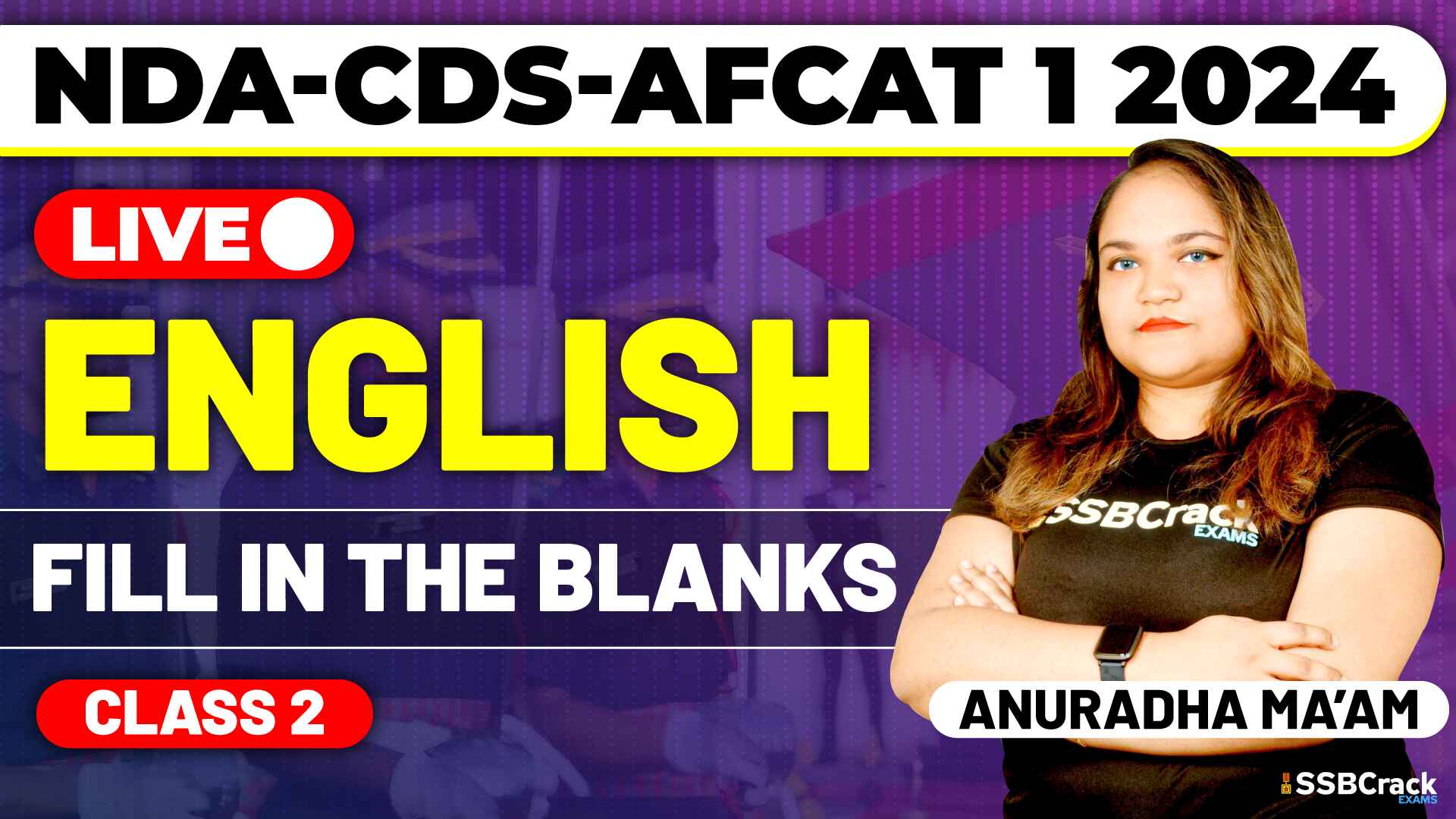National Defence Academy (NDA), Combined Defence Services (CDS), and Air Force Common Admission Test (AFCAT) are prestigious examinations that assess candidates on various facets, including their command over the English language. Among the diverse topics covered in the English section, the study of Fill in the Blanks emerges as a critical element. This article aims to emphasize the importance of the Fill in the Blanks topic in these competitive examinations, elucidating how a thorough understanding of this linguistic skill can significantly impact a candidate’s performance.
Q) To explain his design to his visitors, the architect _________ a simple plan on the blackboard.
(a) built
(b) finalised
(c) sketched
(d) arranged
Ans. (c)
Q) Though Bonsai, a well-known art form, originated in China, it was ___________ by the Japanese.
(a) cultivated
(b) finished
(c) perfected
(d) enlarged
Ans. (c)
Q) He is greatly admired for his _____________ behaviour.
(a) decrease
(b) decadent
(c) decorative
(d) decorous
Ans. (d)
Q) Would you mind _____________ to the Principal how the trouble started?
(a) remarking
(b) saying
(c) explaining
(d) talking
Ans. (c)
Q) Help yourself __________ whatever you can use without wasting.
(a) with
(b) to
(c) in
(d) for
Ans. (b)
Q) Scarcely _______ the teacher entered the class when he heard the noise.
(a)did
(b)has
(c)had
(d)will have
Ans. (c)
Q) Next summer we’re going ________ a trip to Canada.
(a) to
(b) for
(c) on
(d) over
Ans. (c)
Q) Romeo and Juliet’s ________affairs is probably the most loved of all times.
(a) secrete
(b) covert
(c) candied
(d) clad
Ans. (b)
Q) The _______towards the school was very steep.
(a) ascend
(b) ascent
(c) assent
(d) accent
Ans. (b)
Q) Some interesting matters _______in our discussion yesterday.
(a) came up
(b) got up
(c) came in
(d) came about
Ans. (a)
For more questions, check out NDA-CDS-AFCAT 1 2024 Exam English Live – Fill in the Blanks – Class 2
- Testing Grammatical Competence:
The Fill in the Blanks section serves as a litmus test for candidates’ grammatical competence. It assesses their ability to identify appropriate words or phrases that seamlessly fit into a given context. Military professionals are expected to communicate with precision, and a strong foundation in grammar, reflected through proficiency in Fill in the Blanks exercises, is indispensable in meeting this requirement.
- Evaluation of Vocabulary:
Beyond grammatical accuracy, the Fill in the Blanks exercises also gauge candidates’ vocabulary. The ability to select the most fitting word to complete a sentence demonstrates not only knowledge of grammar but also a diverse vocabulary. A well-rounded vocabulary is an asset in the defense services, where effective communication is essential for successful command and cooperation.
- Enhancing Reading Comprehension:
Aptitude in Fill in the Blanks contributes significantly to the enhancement of reading comprehension skills. Candidates must not only recognize grammatically appropriate words but also understand how they contribute to the overall meaning of a passage. This skill is vital in swiftly comprehending written material, a key requirement in the dynamic and challenging environments encountered in military service.
- Decision-Making Skills:
The Fill in the Blanks section often presents candidates with multiple options for completing a sentence. This scenario mirrors real-world situations where quick decision-making is crucial. In military roles, the ability to make informed and efficient decisions is paramount, and the Fill in the Blanks exercises in these examinations serve as a microcosm of this skill.
- Application in Descriptive Writing:
Both written examinations and subsequent interview stages may include descriptive writing components. The proficiency demonstrated in the Fill in the Blanks section carries over to these segments, where candidates are expected to express themselves clearly and coherently. A strong command over completing sentences enhances candidates’ ability to craft articulate and impactful written responses.
Conclusion:
In conclusion, the significance of the Fill in the Blanks topic in NDA, CDS, and AFCAT examinations extends beyond its role as a grammar exercise. It serves as a comprehensive evaluation of candidates’ grammatical competence, vocabulary, reading comprehension, and decision-making skills. Aspiring candidates should approach the study of Fill in the Blanks with diligence, recognizing its pivotal role not only in securing points in the English section but also in honing skills that are indispensable for a successful career in the armed forces.







